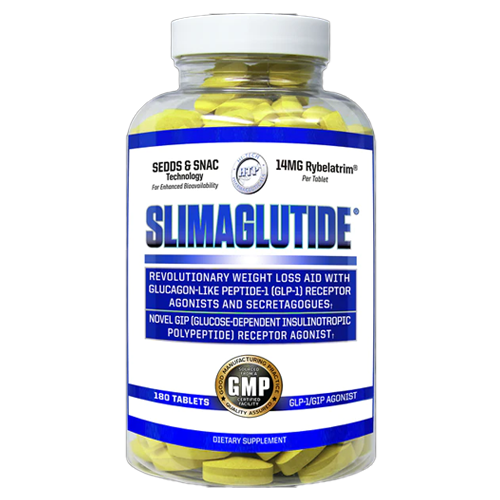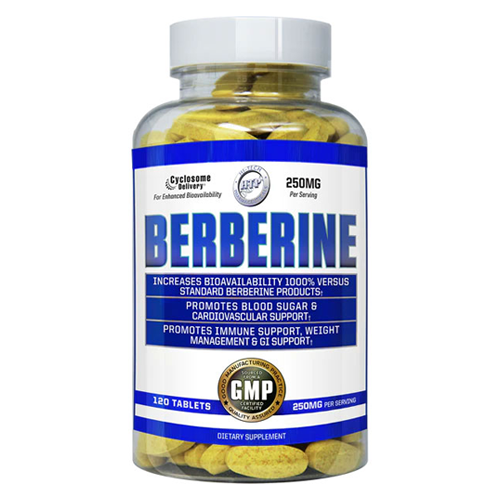Embarking on a journey towards health and well-being often involves exploring natural supplements that promise to enhance our efforts. Among such options, berberine—a bioactive compound heralded by centuries of traditional medicine—has recently garnered attention for its potential impact on weight loss. This article delves into the fascinating before and after effects of berberine weight loss, guided by both berberine success stories and scientific scrutiny. Despite its long history in Chinese and Ayurvedic healing practices, and its availability as a dietary supplement, berberine’s role in modern health is still being unraveled through ongoing research, including its influence on metabolic function and obesity-related conditions.
As we examine does berberine work for weight loss, our insights will be grounded in a 2022 review that correlating the intake of this compound with noticeable reductions in body weight and BMI, particularly effective in dosages exceeding 1 gram per day over the span of several weeks. The intriguing before and after photos weight loss associated with berberine use fuels our inquiry, yet, our investigation remains holistic, weighing the transformative promise against the crucial considerations of safety and potential side effects. Is berberine safe? Can it rival other weight loss aids? These questions are paramount, and I assure you, our exploration will navigate the interconnected realms of berberine clinical studies, user experiences, and responsible health practices, equipping you with the knowledge to make informed decisions about your weight loss transformation journey.

Understanding Berberine and Its Functions
Delving deeper into berberine and its multifaceted role in our bodies, we discover it’s far more than just a weight loss adjunct. As a compound found in various plants like European barberry, phellodendron, and goldenseal, berberine has a storied past, being a staple in traditional medicine for over 3000 years. Here’s how it functions within our system:
- Activation of AMPK: Berberine’s claim to fame lies in its ability to activate an enzyme known as AMP-activated protein kinase or AMPK. This enzyme acts as a metabolic master switch, orchestrating energy balance and helping regulate metabolic processes.
- Health Benefits Beyond Weight Management: While the conversations around berberine often pivot to weight loss, this powerful compound impacts various aspects of our well-being, boasting anti-inflammatory and anti-diabetic properties. It’s shown promise in improving insulin sensitivity, fighting bacteria, and even wielding anti-cancer effects by inhibiting the proliferation of cancer cells.
Improving Lipid Levels
Expanding on these functions, we see that berberine extends its influence to cardiovascular health by improving lipid levels and heart function, while also stabilizing blood pressure and protecting arterial walls. This all contributes to an enhanced weight loss transformation, befittingly supported by before and after photos weight loss anecdotes.
- Gastrointestinal and Microbiota Modulation: What’s fascinating about berberine is its friendly approach to our gut flora. Unlike medications that might indiscriminately target bacteria, it selectively induces cell death in harmful gut bacteria, fostering a more balanced and diverse microbiota. This has profound implications, from improving kidney health to modulating blood sugar levels in tandem with traditional diabetes treatments.
Drawing from my research into berberine clinical studies and berberine success stories, I’ve observed a consistent narrative around its safety and tolerability, although we must remain cognizant of potential medication interactions. Pregnant and breastfeeding women should heed caution, as berberine is contraindicated due to risks of jaundice and brain damage in newborns. While generally well-tolerated, some individuals might experience mild gastrointestinal discomfort, emphasizing the importance of the question, “Is berberine safe?” for personal health contexts.

Berberine for Weight Loss: How Does It Work?
In exploring how berberine aids weight loss, I’ve been particularly impressed by its multi-faceted approach to reducing body fat and enhancing metabolic health. Berberine, readily available as a supplement, taps into our body’s biochemistry with the following actions:
- Inhibiting Fat Growth: Berberine has been shown to interfere with the growth of fat molecules. This means that not only could it help in reducing existing fat, but it may also prevent new fat cells from forming.
- Regulating Metabolism: By influencing the metabolic pathways, berberine could potentially recalibrate our body’s natural metabolism, aiding in weight loss efforts. This regulation is key in maintaining long-term weight loss success.
Clinical evidence underscores the effects of berberine on weight reduction. Research such as a 2020 review highlights the remarkable change berberine can effect, reducing body weight, BMI, and waist circumference. Let me share some eye-opening data points from my findings:
- Clinical Study Results: Participants with obesity observed a significant decrease in their BMI and waist measurement after incorporating berberine daily for six months.
- Beyond Weight Loss: Those undergoing antipsychotic treatments for schizophrenia saw controlled weight gain and metabolic symptoms with berberine as an adjunctive group.
Clinical Studies
Berberine’s profound impact on health conditions is not limited to weight loss. My review of berberine clinical studies revealed its broader therapeutic spectrum:
- Glycolysis and Insulin Secretion: By stimulating glycolysis and improving insulin function, berberine combats obesity right at the cellular core.
- Inhibiting Gluconeogenesis: It effectively stops the creation of glucose in the liver, addressing high blood sugar that’s often linked with weight gain.
- Anti-inflammatory Effects: Berberine’s ability to suppress inflammatory pathways, could significantly contribute to its anti-obesity action.
- Cardiovascular and Schizophrenia-Linked Benefits: Not only does it manage cholesterol levels, particularly in cardiovascular care, but it also ameliorates insulin resistance for those suffering from schizophrenia, manifesting in controlled weight gain.
- Lipid Metabolism and Cancer: It’s inspiring to note how berberine intertwines the inhibition of cancer cell growth with the management of lipid metabolism, indicating its immense potential beyond just weight loss transformation.
In narrating berberine success stories, it would be amiss to not underscore the transformation encapsulated in before and after photos weight loss testimonials. These visual narratives enhance the anecdotal evidence that berberine can instigate significant change. However, we must also consider whether berberine is safe and how it compares with other supplements. The questions, “Is berberine safe?” and “Does berberine work for weight loss?” hold weight and warrant careful assessment. While we seek to marvel at the compelling before and after effects, safety must serve as our compass at every turn of our health journey.

Berberine Weight Loss Before and After
In weaving the story of berberine weight loss before and after, I’m reminded of the profound transformations individuals have experienced. Berberine, this potent compound with roots in natural medicine, is being acclaimed for its weight loss capabilities, a fact I can attest to first-hand and through the success of others.
For instance, one story that sticks with me comes from a woman in Houston, Texas. Determined to change her health trajectory, she focused intently on improving her gut health and introduced berberine supplements into her regimen. Her journey is a testament to the potential of berberine to support weight loss transformation. The changes she witnessed—shedding pounds, a slimmer waist, and a notable decrease in BMI—mirror the findings of several studies which speak to berberine’s ability to fight obesity and its complications.
Beyond the scale, users, including myself, have shared other unexpected yet welcome side effects of berberine:
- A distinct drop in sugar cravings, making it easier to adhere to healthier diets.
- An uplift in mood and mental clarity, often attributed to the supplement’s influence on gut health and systemic inflammation.
- Even the regulation of blood glucose levels, lending a hand to those managing type 2 diabetes.
Evidence Based Success Stories
Being an advocate for evidence-based practices, I must also share a word of caution. While berberine success stories are compelling, and before and after photos weight loss journeys are encouraging, safety should never play second fiddle. The potential side effects—like gastrointestinal discomfort, though often mild and rare—are vital to consider. Additionally, special populations, particularly pregnant individuals and those on other medications, should proceed only under healthcare guidance, due to risks such as bilirubin buildup in infants, which can lead to serious conditions.
As I delve into berberine clinical studies, I’m drawn to its promise, yet I remain realistically grounded. We’re at the precipice of fully understanding how does berberine work for weight loss, with more research needed to iron out the details of its long-term effects and ensure is berberine safe for everyone. But as someone curious and cautious, I value the importance of consulting medical professionals—especially since dietary supplements like berberine vary in quality and are not closely regulated by the FDA.
To encapsulate this ongoing discovery:
- The weight loss transformation aided by berberine can be remarkable, aligning well with the available scientific evidence and berberine success stories.
- User experiences suggest multiple health benefits, but we also acknowledge the mild side effects that may occur.
- It’s crucial to source high-quality berberine and consult with a healthcare provider before integrating it into your wellness plan, an example of responsible self-care in action.
These reflections are not the end of the conversation but rather a checkpoint in a larger journey. As we continue to explore the realm of natural supplements, the intrigue of berberine’s before and after effects propels us forward, searching for clarity and confirmation in the narrative of health optimization.
Comparing Berberine to Other Weight Loss Aids
When considering berberine for weight loss, many of us might draw comparisons with other weight loss aids on the market. As I continue my exploration into berberine weight loss before and after narratives, it’s essential to situate berberine within the wider context of available weight management solutions. Let’s juxtapose berberine against other supplements and medications typically used in weight loss regimens, considering its functionality, safety profile, and the evidence behind its efficacy.
First and foremost, what distinguishes berberine from other products is its impressive lineage, having served as a natural remedy in traditional medicine for centuries. Its over-the-counter availability as a dietary supplement provides easy access for those interested in exploring its effects without prescription. Yet, we should bear in mind that the FDA does not regulate dietary supplements with the same rigor as prescription drugs, so the purity and content of berberine supplements might significantly vary, emphasizing the criticality of selecting high-quality sources.
In the realm of blood sugar management, some studies have compared berberine to metformin, a pharmaceutical standard for regulating glucose levels. While there’s evidence to suggest berberine can be as efficacious as metformin in some aspects, the need for further research remains due to possible drug interactions—especially for substances processed by the liver. Such parallels raise important considerations about whether the touted berberine success stories reflect a comprehensive understanding of the compound’s pharmacological profile.
Weight Loss Dosages
Considering the dosage, aiming for the apparent sweet spot of 1 gram per day for weight loss transformation is informed by research studies. Nevertheless, this general benchmark does not detract from the individually varying responses to berberine supplementation. Here’s an outline of our discussion points:
- Berberine’s long history and recent findings which support its weight loss claims.
- Its comparison to metformin—highlighting potential risks of medication interactions.
- Dosing guidelines and the variable nature of individual responses to berberine.
On the side of caution, potential side effects associated with berberine, such as gastrointestinal disturbances and, in rare occurrences, more severe issues like liver and kidney enlargement or hematological changes, warrant careful consideration. In line with our inquiry into “is berberine safe?” these adverse reactions underscore the importance of monitoring one’s health and seeking professional advice when embarking on a berberine weight loss regimen.
Moreover, for those with special health considerations—such as pregnant women—the safety profile becomes even more critical due to heightened risks like jaundice in newborns. The spectrum of responses to berberine, from the inspiring before and after photos weight loss testimonials to concerns about side effects, confirms that personal health contexts dictate the appropriateness of using this supplement as part of a weight loss strategy.
In assessing whether does berberine work for weight loss, we juxtapose the potential benefits against the inherent risks of unsupervised supplementation. The bottom line remains that even amidst optimistic berberine clinical studies and user success stories, consulting with a healthcare professional is a non-negotiable step for anyone considering berberine. This advice gains further weight if adverse effects emerge, ensuring safety remains the cornerstone of our weight loss journey.
Is Berberine Safe? Understanding the Side Effects
As I delve into my personal experience and the myriad berberine success stories, I’m often asked, “Is berberine safe?” and I find it crucial to address this concern transparently. Berberine has a long track record in traditional medicine, but the modern landscape of supplementation nutraceuticals is a different realm entirely—one where scrutiny and safety are paramount.
- FDA Regulation: It’s important to note that berberine is sold as a dietary supplement in the U.S., which means it isn’t subject to the rigorous testing that the FDA applies to prescription drugs. This lack of regulation can lead to variability in the strength and purity of berberine supplements on the market, underscoring the importance of choosing reputable sources.
- Potential Interactions: Furthermore, berberine may interact with other medications, altering their effects. To name a few:
- Cyclosporine, a medication that prevents organ transplant rejection.
- Blood pressure medications might see altered efficacy.
- Diabetes medications could interact, requiring adjustments in dosing.
- Dextromethorphan, a common ingredient in cough medicines, when combined with berberine, could lead to unwanted side effects.
- Blood thinners’ effectiveness could be compromised or enhanced, posing a risk of abnormal bleeding.
- Gastrointestinal Side Effects: As someone who’s deeply invested in understanding weight loss transformation, I must highlight that berberine can cause mild gastrointestinal disturbances. Users may experience:
- Loss of appetite
- Nausea or vomiting
- Constipation or diarrhea

Before and After Weight Loss Transformations
As we analyze these before and after photos weight loss transformations, it’s essential to consider these side effects when evaluating the question, “does berberine work for weight loss?” within personal health regimens.
Considering the insights gleaned from various berberine clinical studies, it’s evident that the compound boasts potential health benefits. However, the fact that there is insufficient scientific evidence to guarantee the safety of berberine for long-term use cannot be overlooked. This uncertainty amplifies the necessity of consulting with a healthcare professional who can provide tailored advice regarding the inclusion of berberine in one’s weight loss journey, ensuring that it aligns with one’s unique health profile.
In conclusion, while we cannot deny the allure of berberine weight loss before and after narratives, our approach needs to be one of informed caution. As an advocate for responsible health practices, I encourage everyone interested in berberine to engage in dialogue with their doctor to determine its appropriateness, dosing, and to monitor for any side effects if they choose to incorporate it into their health regimens.
Conclusion
In conclusion, berberine emerges as a multifaceted supplement that carries traditional roots into the realm of modern weight management, signaling potential benefits for those seeking natural allies on their weight loss journeys. With clinical studies suggesting improvements in BMI, metabolism, and overall health, the compound’s transformative impact is mirrored in the powerful testimonials and before-and-after anecdotes that many users share. Yet, alongside these promising results, we uphold the utmost emphasis on safety and the importance of individual health considerations—a reminder that consulting with healthcare professionals remains critical in navigating the use of dietary supplements like berberine.
As we draw this exploration to a close, we underscore the blend of optimism and caution that should accompany the integration of supplements such as berberine into our daily regimes. While the significance of these findings can inspire action and hope for better health outcomes, we advocate for continued research and informed decision-making. The implications of berberine’s use stretch beyond individual transformation, prompting reflection on the broader impact it may hold for advancing our understanding of natural compounds in weight management and overall well-being.
FAQs
Drawing from the wellspring of my research and the captivating berberine success stories I’ve encountered, I feel it’s essential to answer some frequently asked questions. I hope these insights will illuminate the path for those considering berberine as part of their weight loss transformation.
- What is Berberine?
- Berberine is a compound with a storied legacy, rooted in over 3000 years of use in traditional medicine to remedy a plethora of ailments, including infections and various skin conditions.
- As a dietary supplement available over the counter in the United States, many seek out berberine for its purported medicinal benefits, which range from weight loss enhancement to managing diabetes and treating infections.
- How Does Berberine Support Weight Loss and Diabetes Management?
- Its impact on blood sugar levels is substantive, especially for those managing type 2 diabetes. Berberine operates by reducing insulin resistance, spurring glycolysis, curtailing glucose production in the liver, slowing the disintegration of carbohydrates in the gut, and fostering a robust population of gut-friendly bacteria.
- A remarkable 2008 study illuminated berberine’s prowess; participants with diabetes taking 1 gram daily saw fasting blood sugar and HbA1c levels dip by 20% and 12%, respectively.
- When compared to established oral diabetes medications like metformin, berberine confidently holds its own, suggesting an efficacy that challenges these pharmaceutical contenders.
- Evidence of berberine’s contributions to weight loss is supported by a 12-week study where individuals with obesity lost an average of 5 pounds courtesy of a 500 mg thrice-daily regimen.
- Weight loss isn’t the only perk; berberine has been linked to significant reductions in body weight, BMI, and waistline in a review encompassing 12 studies.
- How Else Can Berberine Benefit Your Health?
- Aside from the before and after photos weight loss testimonials, berberine’s potential extends to combatting heart disease through reductions in cholesterol and triglycerides, coupled with a boost in HDL cholesterol.
- A cornucopia of additional health benefits includes mood improvement, stalling the spread of cancers, mitigating oxidative stress and inflammation, impeding harmful microorganisms, reducing liver fat, and improving symptoms in heart failure cases.
Now, as for my personal advice and essential cautions to keep in mind:
- Recommended Dosage and Side Effects:
- A typical dosage guideline suggests 500 mg thrice per day, taken half an hour before meals. Yet, the journey of berberine weight loss before and after is not without potential side effects. Some may experience digestive issues like diarrhea or constipation.
- Therefore, my most crucial advice echoes the sentiment found throughout berberine clinical studies: always consult a healthcare professional before taking berberine, especially if you’re juggling medications or managing a health condition.
Through this personal compendium of FAQs, backed by the scientific rigor of peer-reviewed studies and the relatable, human element of berberine success stories, I trust you’re better equipped to discern whether berberine fits into your weight loss transformation narrative. And let’s not forget the prevailing question, “is berberine safe?”—the answer largely lies in personal health contexts and the guidance of trusted medical professionals. As we all navigate our paths to health and vitality, may our steps be informed and our choices be wise.
References
Zahra Ilyas, Simone Perna, Salwa Al-thawadi, Tariq A. Alalwan, Antonella Riva, Giovanna Petrangolini, Clara Gasparri, Vittoria Infantino, Gabriella Peroni, Mariangela Rondanelli, The effect of Berberine on weight loss in order to prevent obesity: A systematic review, Biomedicine & Pharmacotherapy, Volume 127, 2020,
110137, ISSN 0753-3322, https://doi.org/10.1016/j.biopha.2020.110137
The effect of berberine supplementation on obesity parameters, inflammation and liver function enzymes: A systematic review and meta-analysis of randomized controlled trials Published:April 25, 2020 DOI:https://doi.org/10.1016/j.clnesp.2020.04.010
Li, Z., Wang, Y., Xu, Q., Ma, J., Li, X., Yan, J., Tian, Y., Wen, Y., & Chen, T. (2023). Berberine and health outcomes: An umbrella review. Phytotherapy Research, 37(5), 2051–2066. https://doi.org/10.1002/ptr.7806
The effects of berberine supplementation on cardiovascular risk factors in adults: A systematic review and dose-response meta-analysis Front. Nutr., 14 October 2022 Sec. Clinical Nutrition Volume 9 – 2022 https://doi.org/10.3389/fnut.2022.1013055





